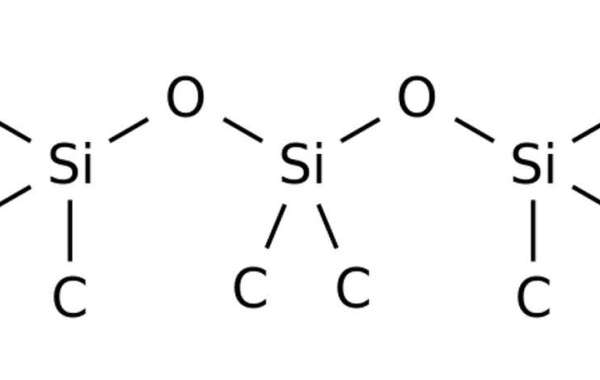Dimethicone is a type of silicone. It is a popular ingredient in many cosmetics, such as skin and hair care products, because it smooths over rough surfaces and has a velvety texture. Dimethicone also forms a protective barrier on the skin, decreasing the loss of moisture and providing some protection from irritants or allergens. Experts consider what is dimethicone to be a safe ingredient with few to no side effects. However, while it is safe for humans, it has a detrimental effect on the environment. Some people prefer to avoid silicones in personal care products for this reason. This article considers the benefits and risks of using products with dimethicone and suggests alternative products for people who wish to avoid the ingredient.
What is dimethicone?
Dimethicone, also known as polydimethylsiloxane, is a substance that comes from silicone. Silicone comes from silica, which is a natural compound present in sand, sandstone, granite, and quartz. Manufacturers produce silicone by heating sand with carbon at very high temperatures, up to 2,200°C (3,992°F). As a result, it is hard to classify whether ingredients such as dimethicone are natural or laboratory-made. Many cosmetics contain dimethicone. It alters the texture of formulas so that they have a silky, velvety feel. It is also odorless, colorless, hypoallergenic, and noncomedogenic, meaning it has a low risk of blocking pores.
Benefits for skin and hair
Dimethicone has several properties that make it useful for skin and hair products. It:
1.Forms a barrier: Dimethicone sits on top of the skin and hair, forming a temporary barrier. This means it provides some protection against contact with irritants or allergens.
2.Maintains moisture: By forming a barrier over the skin, dimethicone also reduces the amount of water the skin loses.
3.Improves texture: Dimethicone smooths surfaces by filling in crevices. This includes large pores and fine lines. In hair products, dimethicone coats the cuticle of the hair, making it feel smoother. Dimethicone also makes the texture of products more “slippy,” allowing for easier application.
4.Gives a matte finish: Primers and moisturizers for oily skin often contain what is dimethicone because it has a matte finish. Dimethicone also helps to seal in moisture without the need for heavier ingredients, such as oils and butters, which can be comedogenic (can block pores).
Is dimethicone safe?
Experts widely regard dimethicone as safe for humans. Dimethicone contains large molecules, which means that it mostly sits on top of the skin or hair. A 2021 safety report confirmed that, in laboratory studies, dimethicone had a low rate of absorption through the skin. Past animal testing also found no evidence of toxicity for what is dimethicone. The Food and Drug Administration (FDA) approves dimethicone for use as an active ingredient. This means that a review of data on the product’s effects found that its benefits outweigh any potential risks. Simethicone is safe for adults to use internally at recommended doses, including when a person is pregnant or breastfeeding. A 2022 articleTrusted Source states that researchers have not found any significant drug interactions.
Side effects and risks of dimethicone
Dimethicone has few known side effects or risks. However, there is evidence that it may not be as effective as other ingredients when it comes to hair care. A 2018 study on untreated hair found that a product containing plant oils had a more beneficial effect on hair strength and shine compared with a silicone-based product. This suggests that while plant oils can actively improve hair health, silicones only have a superficial effect on improving hair texture. Frequent use of some silicones can also cause a buildup of the substance in a person’s hair. Occasional use of a clarifying shampoo, or switching to silicone-free products, may help with this. There is little evidence that dimethicone can cause adverse skin reactions. In past animal studies, some animals developed redness where researchers applied dimethicone to the skin. However, this was temporary and resolved quickly when the researchers stopped applying it.







